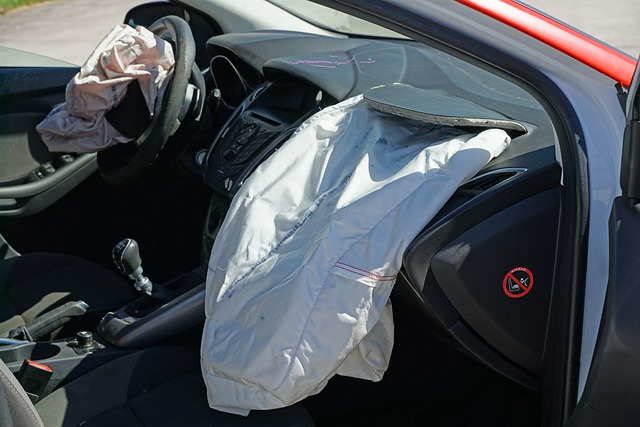Car insurance is a legal necessity offering financial protection against accidents, damages, and thefts. Policies include liability, comprehensive, and collision coverages tailored to individual needs. Add-ons like roadside assistance, rental car reimbursement, and personal effects protection enhance security. Understanding policy specifics and comparing offers from various insurers ensures adequate coverage while managing costs. Effective claims management through prompt reporting and meticulous record-keeping simplifies post-accident procedures. Avoiding common pitfalls, such as underestimating vehicle value or settling for minimal coverages, safeguards against financial vulnerabilities.
Car insurance is not just a necessity, but a safety net that safeguards you from financial burdens resulting from road accidents. Understanding your coverage is crucial for navigating the complex world of car insurance. This comprehensive guide delves into the intricacies of car insurance policies, types of protection, add-ons, legal implications, and premium factors. By exploring these aspects, you can make informed decisions when shopping for the best car insurance deal, ensuring peace of mind on the road.
Understanding Basic Car Insurance Requirements

Car insurance is a legal requirement for all vehicle owners, ensuring they are financially protected in case of accidents or damage. Understanding the basic coverage and requirements is essential before purchasing a policy. Most standard car insurance policies include liability coverage, which protects against claims made by others for damages or injuries resulting from an accident where you are at fault. This includes property damage and bodily injury liability.
Additionally, comprehensive and collision coverages are vital components of a comprehensive car insurance policy. Comprehensive insurance covers a wide range of events beyond accidents, such as theft, vandalism, natural disasters, and animal-related incidents. Collision coverage, on the other hand, pays for repairs or replacements when your vehicle collides with another object or vehicle. Understanding these core elements ensures you have adequate protection tailored to your specific needs while adhering to legal mandates.
Types of Car Insurance Policies: Comprehensive vs. Collision

Car insurance policies can be tailored to suit different needs, with two primary options being Comprehensive and Collision coverage. Understanding the differences between these is crucial for making an informed choice that aligns with your financial comfort and vehicle protection requirements.
Comprehensive car insurance covers a wide range of damages beyond what collision coverage offers. This includes protection against theft, vandalism, natural disasters like floods or earthquakes, and even damage caused by animals. It essentially provides peace of mind by ensuring that you’re not left with a significant financial burden in the event of unforeseen circumstances. On the other hand, Collision insurance primarily focuses on repairing or replacing your vehicle when it’s involved in an accident, regardless of fault. It covers costs such as damage to your car and even medical expenses for occupants injured during the collision.
What is Coverage and How Does it Protect You?

Car insurance coverage refers to the financial protection and security provided by insurance policies for motor vehicles. It is designed to shield policyholders from financial loss in the event of accidents, theft, damage, or legal liabilities related to their cars. Coverage includes various components that collectively ensure comprehensive protection.
When you have car insurance, it acts as a safety net, covering expenses such as repair or replacement costs for your vehicle, medical bills for injuries sustained in an accident, and liability for damages caused to others’ property or persons. This protection is crucial, especially considering the potential financial burdens associated with auto incidents. By ensuring adequate coverage, drivers can maintain peace of mind, knowing they are prepared for unforeseen circumstances on the road.
Important Add-ons to Consider for Enhanced Protection

When considering comprehensive car insurance, it’s crucial to look beyond the basics and explore essential add-ons that can significantly enhance your protection. These optional features are designed to safeguard you against unforeseen circumstances and provide peace of mind on the road. One such add-on is roadside assistance, which offers invaluable support in case of a flat tire, key loss, or battery failure. This service ensures quick response times and can be a lifesaver during emergencies.
Another important coverage to consider is rental car reimbursement, especially if you frequently travel or use your vehicle for business purposes. This add-on compensates for the cost of renting a substitute vehicle while yours is being repaired after an accident. Additionally, personal effects protection should be on your radar, as it shields your belongings within the car from theft or damage, providing extra security during unexpected events. By incorporating these add-ons into your car insurance policy, you’ll have a comprehensive safety net tailored to your specific needs.
Legal Obligations and Car Insurance Implications

When you’re involved in a car accident, regardless of fault, legal obligations come into play. In many jurisdictions, drivers are legally required to have minimal levels of car insurance coverage to protect themselves and others on the road. These legal requirements vary by region, but typically include liability coverage for property damage and bodily injury. Failing to meet these obligations can result in significant fines and legal repercussions.
Car insurance implications extend beyond meeting legal minimums. Comprehensive and collision coverages, often optional add-ons, protect against damages beyond what legal liability covers. These additional policies can be crucial in financial terms, ensuring that unexpected repairs or total vehicle loss don’t leave you burdened with hefty bills. Understanding your policy’s specifics is essential; reviewing the types of coverage, deductibles, and exclusions will empower you to make informed decisions regarding your car insurance needs.
Factors Influencing Car Insurance Premiums

Car insurance premiums are determined by several key factors, each playing a crucial role in shaping the cost of coverage for drivers. One of the primary influences is driving history and age. Young drivers, especially those under 25, often face higher rates due to their lack of experience behind the wheel, which increases the risk of accidents. Conversely, older, more seasoned drivers may see reduced premiums as their reaction times typically improve with age.
The type and make of vehicle are also significant considerations. Sports cars or high-performance vehicles tend to come with higher insurance costs because they are more prone to damage in accidents. Meanwhile, electric or hybrid cars might enjoy lower rates due to their generally safer designs and reduced fuel costs. Additionally, location and lifestyle choices impact premiums; urban drivers may face higher charges due to increased traffic density and potential theft risks, while rural residents often benefit from lower rates.
Shopping for the Best Car Insurance Deal

Shopping for the best car insurance deal involves a bit of research and comparison. Start by understanding your needs; consider factors like coverage limits, deductibles, and additional perks offered by different providers. Car insurance policies can vary greatly in price and benefits, so it’s essential to shop around to find the most suitable option for your budget and requirements.
Utilize online platforms and quote aggregators to gather multiple offers from various insurers. Read the fine print carefully when evaluating policies, paying attention to exclusions, limitations, and any hidden fees. Don’t be swayed solely by lower premiums; ensure comprehensive coverage that provides adequate protection in case of accidents or damages.
Claims Process: Steps to File and Manage

When it comes to car insurance, understanding your claims process is vital for a smooth experience. The journey begins once an accident occurs or damage is realized. First, assess the situation and ensure everyone’s safety. Then, gather essential details from the other party involved, including their insurance information. Contacting your insurance provider promptly is crucial; most companies offer 24/7 support. They will guide you through the steps, which typically involve reporting the incident, providing a detailed account, and gathering evidence like police reports or repair estimates.
The insurer will then assess the claim, evaluating the damage and circumstances. This step may include an inspection of your vehicle. Once approved, they will facilitate the repair or replacement process. It’s important to keep records of all communications and documents related to the claim. Effective management ensures a quicker settlement and minimizes hassle during what can be a challenging time.
Common Mistakes to Avoid in Car Insurance Coverage

When it comes to car insurance, there are several common mistakes that policyholders often make. One of the biggest is underestimating the value of their vehicle. It’s crucial to ensure that your coverage aligns with your vehicle’s actual market value; otherwise, you might find yourself underinsured in case of a total loss or significant repair needs. Additionally, many individuals overlook additional coverages like comprehensive and collision, which can protect against damage from accidents, natural disasters, and theft, respectively.
Another mistake is opting for the bare minimum coverage required by law. While this may save you on premiums, it could leave you vulnerable to substantial out-of-pocket expenses in the event of an accident or other covered incident. Always consider your financial situation, driving history, and specific needs before settling for basic liability insurance. Remember that car insurance is not a one-size-fits-all product; personalized coverage can offer peace of mind and better protection.
